The meaning of the noun
Constituive is a part of a speech that indicates an object and answers the following questions кто? (= who?) , что? (= what?) :
-
 дом
house
дом
house
-
 шкóла
school
шкóла
school
-
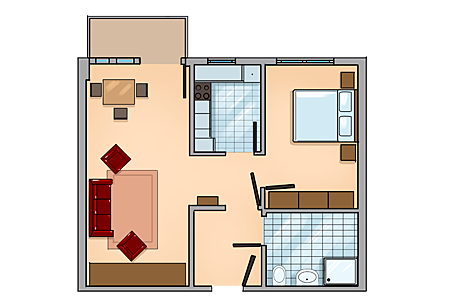 кварти́ра
flat
кварти́ра
flat
-
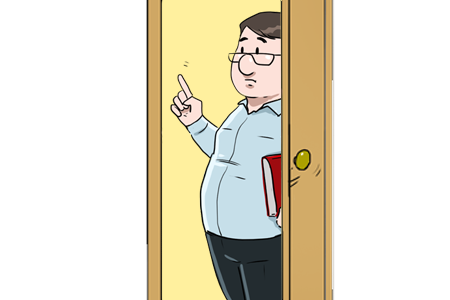 сосе́д
neighbour
сосе́д
neighbour
-
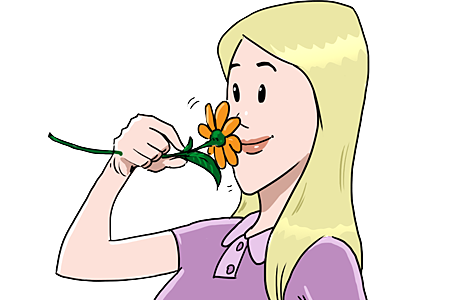 подру́га
friend (female)
подру́га
friend (female)
-
 компью́тер
computer
компью́тер
computer
This meaning is expressed with the help of independent categories of gender, number, case, animateness and inanimateness.
According to their meaning substantives are divided into proper nouns and common nouns.
Substantives refer to masculine, feminine, or neuter genders,they change by case (six case forms) and by numbers (the singular and the plural).
The initial form of substantive is the nominative singular form:
-
 челове́к
man, human
челове́к
man, human
-
 студе́нт
student
студе́нт
student
-
 кни́га
book
кни́га
book
-
 рука́
hand
рука́
hand
-
 окно́
window
окно́
window
-
 ме́сто
place
ме́сто
place
In the sentence substantives often appear as subject and object.
Proper nouns
Proper nouns are names of individuals and objects.Proper nouns include:
-
surnames (pseudonyms, nicknames):
Петро́в , Толсто́й , Тимофе́ев -
names:
Ю́рий , Илья́ , Оле́г -
patronymics:
Алексе́евич , Петро́вич , Алекса́ндрович -
geographic names:
Москва́ (= Moscow ) , Во́лга (= The Volga ) , Байка́л (= Baikal ) -
astronomic names:
Земля́ (= The Earth) , Луна́ (= Moon) , Со́лнце (= The Sun)
Common nouns
Common nouns is a common name for all homogeneous objects, phenomena, actions or states:
-
 дом
house
дом
house
-
 крова́ть
bed
крова́ть
bed
-
 газе́та
newspapers
газе́та
newspapers
-
 дождь
rain
дождь
rain
-
 стул
chair
стул
chair
-
 компью́тер
computer
компью́тер
computer
Animate and inanimate nouns
Animated substantives are used as names of people and animals and they answer the question кто? (= who?) :
-
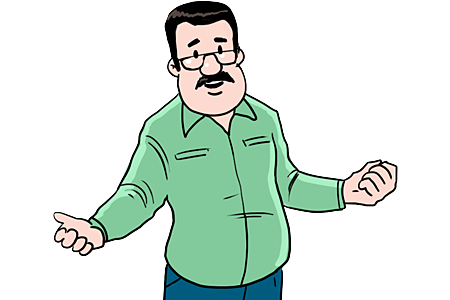 оте́ц
father
оте́ц
father
-
 брат
brother
брат
brother
-
 сестра́
sister
сестра́
sister
-
 студе́нтка
student (female)
студе́нтка
student (female)
-
 соба́ка
dog
соба́ка
dog
-
 кот
cat
кот
cat
Inanimated substantives are used as names of inanimate objects, as well as objects of the vegetable world and answer the question что? (= what?) :
-
 дом
house
дом
house
-
 ко́мната
room
ко́мната
room
-
 письмо́
letter
письмо́
letter
-
 сад
garden
сад
garden
-
 бу́ква
letter
бу́ква
letter
-
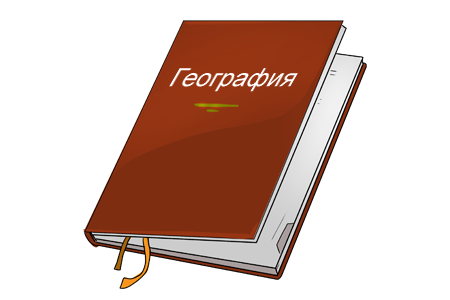 уче́бник
handbook
уче́бник
handbook
Gender of nouns
All substantives (not including substantives which are always used in the plural: но́жницы (= scisssors) , брю́ки (= trousers) , etc.) refer to one of the three genders: masculine, feminine or neuter.
-
substantives of masculine gender:
магази́н (= shop) , трамва́й (= tramway) , по́езд (= train) , учи́тель (= teacher) , студе́нт (= student) , дождь (= rain) -
substantives of feminine gender:
шко́ла (= school) , неде́ля (= week) , фотогра́фия (= photography) , учи́тельница (= teacher (female)) , студе́нтка (= student (female)) , тетра́дь (= notebook ) -
substantives of neuter gender:
ме́сто (= place) , окно́ (= window ) , письмо́ (= letter) , зда́ние (= building ) , пла́вание (= swimming pool ) , иску́сство (= art )
In the Russian language there are three types of substantives: feminine, masculine and neuter. In most cases, the gender of the substatntives can be determined by its ending.
Substantives of masculine gender end in
-
the consonant.
магази́н (= shop) , журна́л (= magazine, journal ) , по́езд (= train) -
on -й:
музе́й (= museum) , трамва́й (= tramway) -
on -ь:
слова́рь (= dictionary) , зверь (= beast ) , учи́тель (= teacher)
Substantives of feminine gender end in
-
on -а:
страна́ (= country, land ) , газе́та (= newspapers ) , шко́ла (= school) -
on -я:
фами́лия (= family) , земля́ (= Earth) , неде́ля (= week) -
on -ь:
ночь (= night ) , тетра́дь (= notebook )
Substantives of neuter gender end in:
-
on -о:
де́рево (= tree) , письмо́ (= letter) , окно́ (= window ) -
on -е:
мо́ре (= sea ) , кафе́ (= coffee) , зда́ние (= building )
Some substantives with endings -а/-я refer to the masculine gender if they denote males , or refer to the feminine gender if they denote females. These are substantives of common gender:
Number of nouns
Substantives are used in the singular form or in the plural form.
The singular form is used when it comes to one object:
The plural form is used when it comes to several objects:
Some substantives are used either only in the singular (singularita tantum), or only in the plural (pluralia tantum)
Substantives that have only the singular form:
-
Names of the set of identical persons and objects (collective nouns):
молодё́жь (= youth ) , детвора́ (= children ) , листва́ (= foliage) , студе́нчество (= studentship) , учи́тельство (= teachership) , челове́чество (= mankind ) -
Names of items with a real value:
асфа́льт (= asphalt) , бензи́н (= gasoline ) , желе́зо (= iron) , земляни́ка (= strawberry) , кероси́н (= oil) , каучу́к (= rubber) , мёд (= honey) , молоко́ (= milk) , свё́кла (= beet-root) , сталь (= steel) , рожь (= rye ) , хло́пок (= cotton) , цеме́нт (= concrete ) , фарфо́р (= porcelain) -
Names of quality or feature:
белизна́ (= whiteness) , зло́ба (= malice) , ло́вкость (= dexterity) , мо́лодость (= youth) , све́жесть (= freshness) , темнота́ (= darkness) , чернота́ (= blackness) -
Names of action or status:
доста́вка (= delivery) , выполне́ние (= performance) , удивле́ние (= surprise) , изумле́ние (= amazement) , внуше́ние (= inculcation) , горе́ние (= combustion) , хожде́ние (= walking) , ходьба́ (= walk) , чте́ние (= reading) , пла́вание (= swimming) -
Proper names as the names of single items:
Москва́ (= Moscow) , Екатеринбу́рг (= Yekaterinburg) , Во́лга (= the Volga) , Циолко́вский (= Tsiolkovsky )
Substantives that have only the plural form:
-
Names of composite objects and pairs:
брю́ки (= trousers) , весы́ (= scales) , воро́та (= gate) , гра́бли (= rake) , ви́лы (= pitchfork) , кле́щи (= pincers) , но́жницы (= scisssors) , носи́лки (= handbarrow) , очки́ (= glasses) , пери́ла (= railing) , часы́ (= clock) , шо́рты (= shorts) , щипцы́ (= tongs) -
Names of materials or their wastes and residues:
бели́ла (= ceruse) , дро́жжи (= yeast) , духи́ (= perfume) , консе́рвы (= preserves) , макаро́ны (= pasta ) , обо́и (= wallpaper) , опи́лки (= sawdust) , о́труби (= off-corn) , сли́вки (= cream) , сухофру́кты (= dried fruits) , те́фтели (= meatballs) , хло́пья (= flakes) , черни́ла (= ink) -
Names of interims and games:
кани́кулы (= holidays) , су́тки (= day) , бу́дни (= workdays) , ша́хматы (= chess) , жму́рки (= blind man's buff) -
Names of nature actions and states:
хло́поты (= trouble) , вы́боры (= election) , перегово́ры (= negotiations) , напа́дки (= accusations) , деба́ты (= debate) , всхо́ды (= seedlings) , су́мерки (= twilight) -
Some geographical names:
Карпа́ты (= the Carpathian Mountains ) , Соко́льники (= Sokolniki) , Афи́ны (= Athens ) , А́льпы (= the Alps ) , Балка́ны (= the Balkans)
Cases of nouns
In Russian there are six cases: the nominative, the genitive, the dative, the accusative, the instrumental and the prepositional. The case is determined with the help of a question.
| Case | Question |
|---|---|
|
Именительный
Nominative
|
кто? (= who?) or что? (= what?) |
|
Родительный
Genitive
|
кого? (= whom?) or чего? (= what?) |
|
Дательный
Dative
|
кому? (= to whom?) or чему? (= to what?) |
|
Винительный
Accusative
|
кого? (= whom?) or что? (= what?) |
|
Творительный
Instrumental
|
кем? (= by whom?) or чем? (= with what ?) |
|
Предложный
Prepositional
|
о ком? (= about whom?) or о чём? (= about what?) |
In the sentence the nominative case is always used without preposition:
The remaining cases are called objective cases; they can be used with prepositions:
or without prepositions:
except for the prepositional case, which is always used with prepositions:
Reliable questions кто? (= who?) , кого? (= whom?) , кому? (= to whom?) etc. refer to animated substantives :
And questions что? (= what?) , чего? (= what?) , чему? (= to what?) etc. refer to inanimated substantives :
Declension of nouns
Declination of substantives is a change of words according to the case. In Russian there are three types of declensions of substantives .
| Declension | Gender | In the nominative singular form substatantive ends in |
|---|---|---|
| 1 |
Feminine gender
Masculine gender |
-а, -я |
| 2 |
Masculine gender Neuter gender |
soft or hard consonant -о, -е |
| 3 | Feminine gender | soft or hard consonant |
First declension
The first type of declension includes substantives of feminine gender with ending -а/-я in the nominative singular form :
and also substantitives of masculine gender with the same endings denoting people :
| Cases | The singular | ||||
|---|---|---|---|---|---|
|
Именительный
Nominative
|
страна́
country
|
ю́ноша
young man
|
земля́
earth
|
семья́
family
|
ле́кция
lecture
|
|
Родительный
Genitive
|
страны́
|
ю́ноши
|
земли́
|
семьи́
|
ле́кции
|
|
Дательный
Dative
|
стране́
|
ю́ноше
|
земле́
|
семье́
|
ле́кции
|
|
Винительный
Accusative
|
страну́
|
ю́ношу
|
зе́млю
|
семью́
|
ле́кцию
|
|
Творительный
Instrumental
|
странóй
|
ю́ношей
|
землё́й
|
семьё́й
|
ле́кцией
|
|
Предложный
Prepositional
|
(о) стране́
|
(о) ю́ноше
|
(о) земле́
|
(о) семье́
|
(о) ле́кции
|
| Cases | The plural | ||||
|---|---|---|---|---|---|
|
Именительный
Nominative
|
стра́ны
|
ю́ноши
|
зе́мли
|
се́мьи
|
ле́кции
|
|
Родительный
Genitive
|
стран
|
ю́ношей
|
земе́ль
|
семе́й
|
ле́кций
|
|
Дательный
Dative
|
стра́нам́
|
ю́ношам
|
зе́млям
|
се́мьям
|
ле́кциям
|
|
Винительный
Accusative
|
стра́ны
|
ю́ношей
|
зе́мли
|
се́мьи́
|
ле́кции
|
|
Творительный
Instrumental
|
стра́нами
|
ю́ношами
|
зе́млями
|
се́мьями
|
ле́кциями
|
|
Предложный
Prepositional
|
(о) стра́нах
|
(о) ю́ношах
|
(о) зе́млях
|
(о) се́мьях
|
(о) ле́кциях
|
Second declension
The second type of declension includes substantives of masculine gender with zero ending {1} :
and also with -о, -е endings :
and substantives of neuter gender with endings -о, -е in the nominative singular form:
| Cases | Masculine gender | ||||
|---|---|---|---|---|---|
|
Именительный
Nominative
|
инжене́р
engineer
|
магази́н
shop
|
ге́ний
genius
|
конь
male horse
|
гвоздь
nail
|
|
Родительный
Genitive
|
инжене́ра
|
магази́на
|
ге́ния
|
коня́
|
гвоздя́
|
|
Дательный
Dative
|
инжене́ру
|
магази́ну
|
ге́нию
|
коню́
|
гвоздю́
|
|
Винительный
Accusative
|
инжене́ра
|
магази́н
|
ге́ния
|
коня́
|
гвоздь
|
|
Творительный
Instrumental
|
инжене́ром
|
магази́ном
|
ге́нием
|
конё́м
|
гвоздё́м
|
|
Предложный
Prepositional
|
(о) инжене́ре
|
(о) магази́не
|
(о) ге́нии
|
(о) коне́
|
(о) гвозде́
|
| Cases | Neuter gender | ||||
|---|---|---|---|---|---|
|
Именительный
Nominative
|
де́ло
business
|
село́
village
|
по́ле
field
|
собра́ние
meeting
|
|
|
Родительный
Genitive
|
де́ла
|
села́
|
по́ля
|
собра́ния
|
|
|
Дательный
Dative
|
де́лу
|
селу́
|
по́лю
|
собра́нию
|
|
|
Винительный
Accusative
|
де́ло
|
село́
|
по́ле
|
собра́ние
|
|
|
Творительный
Instrumental
|
де́лом
|
село́м
|
по́лем
|
собра́нием
|
|
|
Предложный
Prepositional
|
(о) де́ле
|
(о) селе́
|
(о) по́ле
|
(о) собра́нии
|
|
| Cases | Masculine gender | ||||
|---|---|---|---|---|---|
|
Именительный
Nominative
|
инжене́ры
|
магази́ны
|
ге́нии
|
ко́ни
|
гво́зди
|
|
Родительный
Genitive
|
инжене́ров
|
магази́нов
|
ге́ниев
|
коне́й
|
гвозде́й
|
|
Дательный
Dative
|
инжене́рам
|
магази́нам
|
ге́ниям
|
коня́м
|
гвоздя́м
|
|
Винительный
Accusative
|
инжене́ров
|
магази́нов
|
ге́ниев
|
коне́й
|
гво́зди
|
|
Творительный
Instrumental
|
инжене́рами
|
магази́нами
|
ге́ниями
|
коня́ми
|
гвоздя́ми
|
|
Предложный
Prepositional
|
(о) инжене́рах
|
(о) магази́нах
|
(о) ге́ниях
|
(о) коня́х
|
(о) гвоздя́х
|
| Cases | Neuter gender | ||||
|---|---|---|---|---|---|
|
Именительный
Nominative
|
дела́
|
сё́ла
|
поля́
|
собра́ния
|
|
|
Родительный
Genitive
|
дел
|
сёл
|
поле́й
|
собра́ний
|
|
|
Дательный
Dative
|
дела́м
|
сё́лам
|
поля́м
|
собра́ниям
|
|
|
Винительный
Accusative
|
дела́
|
сё́ла
|
поля́
|
собра́ния
|
|
|
Творительный
Instrumental
|
дела́ми
|
сё́лами
|
поля́ми
|
собра́ниями
|
|
|
Предложный
Prepositional
|
(о) дела́х
|
(о) сё́лах
|
(о) поля́х
|
(о) собра́ниях
|
|
Third declension
The third type of declension includes substantives of feminine gender with zero ending {1} in the nominative singular form: :
| Cases | The singular | ||
|---|---|---|---|
|
Именительный
Nominative
|
ло́шадь
horse
|
пло́щадь
square
|
ночь
night
|
|
Родительный
Genitive
|
ло́шади
|
пло́щади
|
но́чи
|
|
Дательный
Dative
|
ло́шади
|
пло́щади
|
но́чи
|
|
Винительный
Accusative
|
ло́шадь
|
пло́щадь
|
ночь
|
|
Творительный
Instrumental
|
ло́шадью
|
пло́щадью
|
но́чью
|
|
Предложный
Prepositional
|
(о) ло́шади
|
(о) пло́щади
|
(о) но́чи
|
| Cases | The plural | ||
|---|---|---|---|
|
Именительный
Nominative
|
ло́шади
|
пло́щади
|
но́чи
|
|
Родительный
Genitive
|
лошаде́й
|
площаде́й
|
ноче́й
|
|
Дательный
Dative
|
лошадя́м
|
площадя́м
|
ноча́м
|
|
Винительный
Accusative
|
лошаде́й
|
пло́щади
|
но́чи
|
|
Творительный
Instrumental
|
лошадьми́
|
площадя́ми
|
ноча́ми
|
|
Предложный
Prepositional
|
(о) лошадя́х
|
(о) площадя́х
|
(о) ночах́
|
Substantives мать (= mother) and дочь (= daughter) have a particular declension. These substantives in all cases, except for the nominative and accusative case in the singular have inflectional suffix -ер-:
Nouns with irregular declension
Ten substantives of neuter gender ending in -мя:
and substantive of masculine gender путь (= path) in the genitive, dative and prepositional cases in the singular have the endings of substantives of the third type of declension -и:
and in the instrumental case have endings of substantives of the second type of declension -ем/-ём:
Declension of nouns of the middle gender with -мя ending
| Cases | The singular | The plural | ||
|---|---|---|---|---|
|
Именительный
Nominative
|
и́мя
name
|
зна́мя
banner
|
имена́
|
знамёна́
|
|
Родительный
Genitive
|
и́мени
|
зна́мени
|
имё́н
|
знамё́н
|
|
Дательный
Dative
|
и́мени
|
зна́мени
|
имена́м
|
знамё́нам
|
|
Винительный
Accusative
|
и́мя
|
зна́мя
|
имена́
|
знамёна́
|
|
Творительный
Instrumental
|
и́менем
|
зна́менем
|
имена́ми
|
знамё́нами
|
|
Предложный
Prepositional
|
(об) и́мени
|
(о) зна́мени
|
(об) имена́х
|
(о) знамё́нах
|
For nouns -мя in the genitive, dative, instrumental and prepositional cases in the singular and in all cases in the plural inflectional suffix -ен-/-ён- is added to the root:
In the words seed and stirrup in the genitive plural form the suffix -ян- is added to the root:
Declension of путь (= path) noun
| Cases | The singular | The plural |
|---|---|---|
|
Именительный
Nominative
|
путь
|
пути́
|
|
Родительный
Genitive
|
пути́
|
путе́й
|
|
Дательный
Dative
|
пути́
|
путя́м
|
|
Винительный
Accusative
|
путь
|
пути́
|
|
Творительный
Instrumental
|
путё́м
|
путя́ми
|
|
Предложный
Prepositional
|
(о) пути́
|
(о) путя́х
|
Aptotes
Indeclinable nouns are the nouns that have the same form for all cases:
Among them there are both common names:
and proper names:
Indeclinable nouns include:
-
many substantives of foreign origin with final vowels -о, -е, -и, -у, -ю and with ultimate stress -а:
ра́дио (= radio) , метро́ (= metro) , табло́ (= panel) , коммюнике́ (= communique) , такси́ (= taxi) , рагу́ (= ragout) , кенгуру́ (= kangaroo) , меню́ (= menu) , боа́ (= neckpiece) , (рома́н) Дюма́ (= novel of Dumas) , (поэ́ма) Ге́йне (= poem of Heine ) , (го́род) Суху́ми (= Sukhumi-(city)) , (го́род) О́сло (= Oslo -(city)) , (го́род) Баку́ (= Baku -(city)) , (река́) Миссиси́пи (= the Mississippi River) -
foreign surnames denoting females and ending in consonant:
(стихи́) Алиге́р (= (verse) of Aliger) , (рома́н) Во́йнич (= (novel) of Voynich,) -
Russian and Ukrainian surnames with -о and -их/-ых endings
Дурново́ , Франко́ , Черны́х , Долги́х -
abridgements of letter and mixed character:
ЕС , РАН , ООН , СНГ , ВДНХ , МГУ , сельпо etc.